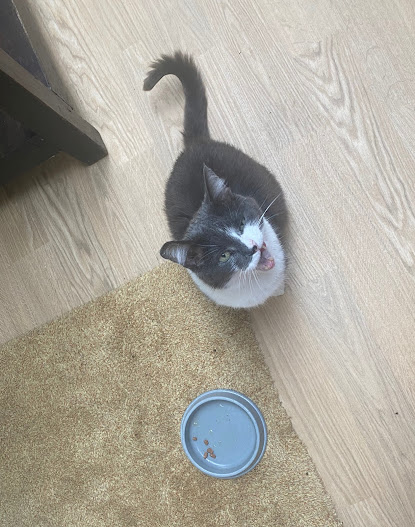I like my food - regular portions delivered at the right time of day by my human. In an ideal world, each portion would be about the size of a small rodent and it would be delivered about six times a day.
That is how I would eat in the wild. I would have to hunt for each meal and many of my hunting attempts, at least half, would be unsuccessful. So to get six rodents, I should need to patrol, find the prey, and steady myself then launch a pounce at least 12 times a day.
That's a lot of effort with space and patrolling between each hunting effort. So the timing of my meals would be one small meal, then a gap, then another.
That's not how I am fed. My owner puts down food for me usually twice a day, before she leaves the house and when she comes back. She used to leave unlimited dry food so I could snack as often as I liked, but I got too fat.
So, she puts the food down, usually an envelope. Then I eat some of it and leave about half. I often then ask for more even though there is half the food uneaten.
This irritates her. Even when I eat most of the food, I leave a little bit.
"Why do you always leave something for Mr Manners," she asks rhetorically.
I just smirk and meow for a new envelope.



.jpeg)





